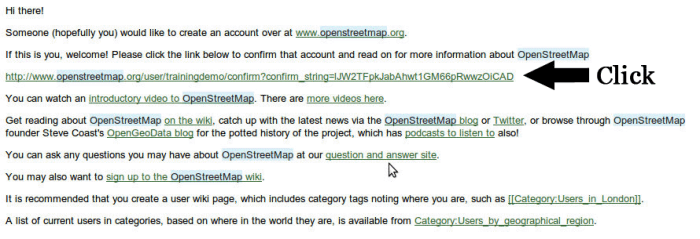
Account-based selling is revolutionizing the sales landscape by focusing on targeted accounts rather than a broad audience. This approach enables businesses to tailor their strategies to meet the unique needs of high-value clients, fostering deeper relationships and enhancing revenue potential. With its growing significance, understanding the nuances of account-based selling has become essential for sales professionals navigating today’s competitive market.
This strategy not only differentiates itself from traditional selling methods but also empowers companies to leverage data, analytics, and personalization to drive results. By honing in on specific accounts, businesses can craft personalized experiences that resonate with their clients, ultimately leading to greater success and innovation in sales practices.
Understanding Account-Based Selling
Account-based selling (ABS) represents a strategic approach in modern sales where businesses prioritize specific accounts over mass market tactics. This method is significant as it aligns sales and marketing teams to target high-value clients, ensuring tailored strategies that resonate with each account’s unique needs. In contrast to traditional selling methods, which often focus on a broad audience, account-based selling hones in on key accounts, allowing for deeper relationships and more personalized engagements.
- Top companies like HubSpot and Salesforce have successfully implemented ABS by utilizing targeted outreach and personalized content, resulting in increased conversion rates and customer satisfaction.
- For instance, a tech company may identify five key accounts and develop specific campaigns for each, increasing the likelihood of closing deals.
Differences Between Account-Based Selling and Traditional Selling
The primary differentiation between ABS and traditional selling methods lies in the approach towards potential clients. Traditional methods often rely on volume, aiming to reach as many prospects as possible, while ABS focuses on quality over quantity.
- Traditional Selling: Broad, one-size-fits-all messaging aimed at a large audience.
- Account-Based Selling: Customized strategies targeting specific accounts with personalized messaging and offerings.
- Outcome Focus: ABS typically results in higher close rates due to its tailored nature, while traditional selling may have lower engagement levels with prospects.
Key Components of Account-Based Selling
To successfully implement an account-based selling strategy, several core components are essential. These elements create a robust framework for targeting and engaging high-value accounts effectively.
Core Elements of an Effective Account-Based Selling Strategy
An effective account-based selling strategy encompasses several critical elements:
- Identification of Target Accounts: Selecting high-value accounts that align with the business’s goals and capabilities.
- Personalization: Crafting unique value propositions and messaging tailored to each account’s specific needs and challenges.
- Collaboration: Ensuring alignment between sales and marketing teams to streamline efforts and enhance targeting strategies.
Role of Data and Analytics in Account-Based Selling
Data and analytics play a pivotal role in account-based selling, empowering businesses to make informed decisions based on concrete insights. Through data, companies can identify potential accounts, understand their behaviors, and tailor marketing efforts accordingly.
- Utilizing CRM systems can help track interactions, preferences, and history, allowing for more effective engagement.
- Analytics tools can reveal patterns in buying behavior, enabling sales teams to anticipate needs and improve response strategies.
Impact of Personalization on Success
Personalization is a game-changer in account-based selling. By adapting approaches to fit each client’s context, businesses can foster deeper relationships and higher rates of engagement.
- Customized messaging and offers that address the specific pain points of accounts lead to improved trust and rapport.
- Successful brands leverage personalization by utilizing account insights to create targeted content, resulting in more meaningful interactions.
Business Innovation in Account-Based Selling
Account-based selling is not only about targeting the right accounts; it also encourages business innovation. This approach drives companies to innovate in various aspects, from technology to customer engagement strategies.
How Account-Based Selling Fosters Business Innovation
The focus on specific accounts necessitates creative solutions and new offerings tailored to meet the evolving needs of clients.
- Innovation can manifest in product development that addresses unique client demands or creating new service models that enhance customer experience.
- Companies that embrace ABS often find themselves at the forefront of industry trends as they adapt quickly to client feedback and market changes.
Innovative Tools and Technologies Enhancing Account-Based Selling
Numerous tools and technologies enhance the effectiveness of account-based selling efforts, streamlining processes and providing valuable insights.
- CRM platforms such as Salesforce and HubSpot facilitate detailed tracking of accounts, allowing sales teams to manage interactions effectively.
- Data analytics tools like Google Analytics provide insights into account behavior, helping teams refine their strategies based on performance metrics.
Case Studies of Successful Innovations
Several companies have successfully integrated innovation into their account-based selling approaches, yielding impressive results.
- A leading SaaS firm revamped its customer onboarding process based on feedback from key accounts, resulting in a 30% increase in customer retention.
- A financial services company developed bespoke solutions for top-tier clients, leading to significant revenue growth from these accounts.
International Business and Account-Based Selling
Implementing account-based selling in international markets presents unique challenges and opportunities. Understanding these complexities is critical for success on a global scale.
Challenges of Implementing Account-Based Selling Internationally
The intricacies of different markets can complicate account-based selling strategies.
- Cultural differences may affect communication styles and decision-making processes, requiring tailored approaches for each region.
- Legal and regulatory considerations can vary significantly, impacting how companies engage with clients in different countries.
Cultural Considerations Impacting Strategies Globally
Cultural nuances can significantly influence the effectiveness of account-based selling strategies. Companies need to be sensitive to local customs and preferences.
- Understanding local business practices and etiquette is essential for establishing trust and credibility with international clients.
- Tailoring messaging to resonate with local values and expectations can greatly enhance engagement and acceptance.
Examples of Successful Account-Based Selling Across Different Countries
Many companies have successfully executed account-based selling strategies internationally, leading to fruitful partnerships and market expansion.
- A European tech company focused its efforts on specific multinational corporations in Asia, successfully adapting its solutions to meet local needs.
- A U.S.-based firm expanded into South America by building relationships with key accounts, understanding the regional market dynamics thoroughly.
Interview Techniques for Account-Based Selling
Effective interviewing techniques are paramount in gathering insights from potential clients during the account-based selling process. These techniques help sales professionals uncover valuable information that can guide their strategies.
Effective Interview Techniques for Gathering Insights
To extract meaningful insights from potential clients, sales teams should employ specific interview techniques that foster open dialogue.
- Asking open-ended questions encourages clients to share their experiences and challenges, providing deeper insights into their needs.
- Active listening techniques, such as paraphrasing and summarizing, help assure clients that their input is valued and understood.
Framework for Structuring Interviews with Key Stakeholders

A structured framework can enhance the effectiveness of interviews conducted with key stakeholders during the account-based selling process.
- Begin with rapport-building questions to set a comfortable tone for the conversation.
- Move into exploration questions that delve into the client’s current challenges and objectives.
- Conclude with questions focused on how your solutions can address their specific needs.
Building Rapport and Trust During Interviews
Establishing rapport and trust is essential for successful interviews in account-based selling. Sales professionals can implement strategies to create a positive atmosphere.
- Utilizing common ground, such as mutual connections or shared interests, can help establish a bond with clients.
- Demonstrating genuine interest in their challenges and actively engaging in the conversation fosters trust and openness.
Job Search Techniques for Account-Based Selling Roles
For those seeking roles in account-based selling, understanding essential skills and qualifications is crucial for successful job searches in this competitive field.
Essential Skills and Qualifications for Account-Based Selling Roles
Candidates looking to excel in account-based selling should focus on developing specific skills and qualifications.
- Strong communication and interpersonal skills are fundamental for building relationships with clients.
- Analytical skills are essential for interpreting data and understanding client needs effectively.
- Experience in customer-facing roles and knowledge of sales methodologies can enhance a candidate’s profile.
Strategies for Marketing Yourself in Account-Based Selling
Job seekers can adopt various strategies to effectively market themselves in the field of account-based selling.
- Crafting a tailored resume highlighting relevant experiences and achievements in account management can capture attention.
- Utilizing LinkedIn to connect with industry professionals and showcase expertise can enhance visibility and networking opportunities.
Networking Tips for Account-Based Selling Opportunities

Networking plays a critical role in uncovering job opportunities in account-based selling.
- Attending industry events and conferences can facilitate valuable connections with potential employers and industry peers.
- Leveraging online forums and professional groups can provide insights into job openings and trends in the field.
Business Management and Account-Based Selling
Account-based selling significantly influences overall business management practices, necessitating an understanding of its impact across departments.
Impact of Account-Based Selling on Business Management Practices
Implementing account-based selling requires adjustments to existing business management practices to enhance effectiveness.
- Sales and marketing alignment is crucial, ensuring both departments collaborate seamlessly to achieve common goals.
- Data-driven decision-making processes help track performance and optimize engagement strategies based on measurable outcomes.
Cross-Department Collaboration in Account-Based Selling
Successful account-based selling relies on collaboration among various departments within an organization.
- Sales, marketing, and customer service teams must work in unison to ensure a consistent approach to account management.
- Regular communication and shared goals foster a unified strategy that enhances client engagement and satisfaction.
Management Strategies Supporting Account-Based Selling
Employing effective management strategies is vital for supporting account-based selling initiatives.
- Providing training on account-based selling methodologies equips teams with the necessary skills to engage clients effectively.
- Establishing clear performance indicators and regular evaluations helps maintain accountability and drive results.
Marketing Direct and Account-Based Selling
Integrating direct marketing strategies with account-based selling can significantly enhance results and drive engagement with potential clients.
Enhancing Account-Based Selling Results with Direct Marketing
Direct marketing serves as a powerful tool to complement account-based selling efforts.
- Utilizing targeted email campaigns to deliver customized content can engage high-value accounts effectively.
- Direct marketing can also include personalized outreach via social media, enhancing visibility and connection with key decision-makers.
Plan for Integrating Direct Marketing with Account-Based Selling
A strategic plan for integrating direct marketing into account-based selling efforts can optimize overall effectiveness.
- Align direct marketing campaigns with account-based initiatives to create cohesive messaging that resonates with target accounts.
- Utilize analytics to track the performance of direct marketing efforts and adjust strategies based on client feedback and engagement levels.
Examples of Successful Integration of Direct Marketing and Account-Based Selling
Several companies have successfully combined direct marketing with account-based selling strategies, leading to impressive outcomes.
- A software company executed a targeted direct mail campaign to key accounts, resulting in increased engagement and higher conversion rates.
- A B2B service provider used personalized video outreach to connect with potential clients, significantly enhancing response rates.
Final Thoughts
In conclusion, account-based selling presents a transformative approach that can drive substantial growth and innovation for businesses. By understanding its key components and integrating effective strategies, companies can foster stronger client relationships and achieve their sales objectives. As the landscape of sales continues to evolve, adopting account-based selling practices will undoubtedly position businesses for long-term success in an ever-changing market.
Helpful Answers
What is account-based selling?
Account-based selling is a sales strategy that focuses on targeting specific high-value accounts rather than a broad audience, allowing for personalized approaches tailored to each client’s needs.
How does account-based selling differ from traditional selling?
Unlike traditional selling, which often employs a one-size-fits-all approach, account-based selling emphasizes customization and relationship-building with select accounts for better engagement and results.
What are the benefits of account-based selling?
Benefits include improved client relationships, higher conversion rates, better resource allocation, and the ability to leverage insights for personalized engagement.
Can small businesses implement account-based selling?
Yes, small businesses can effectively implement account-based selling by leveraging their unique advantages, such as agility and personalized service, to attract and retain valuable clients.
What role does data play in account-based selling?
Data is crucial in account-based selling as it provides insights into client behavior, preferences, and needs, enabling sales teams to tailor their strategies for maximum impact.





